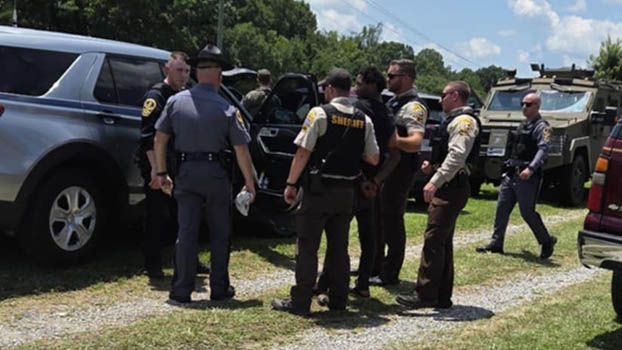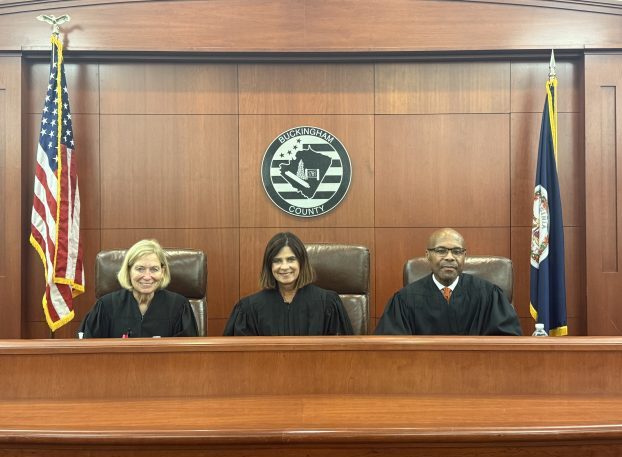'Charging Up The Wrong Hill'
Published 4:20 pm Thursday, November 17, 2011
SAILOR'S CREEK – “I have come a long way from Sailor's Creek.”
General Sam Wilson's voice audibly broke as he recalled a tragic case of misdirected aircraft fire he witnessed against charitable and friendly Burmese villagers, during his WWII combat service with Merrill's Marauders.
“I was a 20-year old infantry lieutenant fighting behind Japanese lines and confronting tragedy at every turn.”
Wilson, 88, engaged a rapt regional audience of 25 listeners of all ages with his informal “Reflections on War as a Son of Sailor's Creek” soliloquy, Sunday, October 9th at the Sailor's Creek battlefield historical state park.
Wilson's boyhood home, at nearby Rice, is less than five miles from the battlefield he frequented as a young farm boy.
His talk, the second in a series of five October “rocking chair” sessions held on Sunday afternoons, both reminisced and remonstrated with his listeners, looking back on a 70-year career of public service, the first thirty-seven of which were spent in military uniform.
During those nearly four decades, Wilson rose from national guard private to regular army three-star general. Hardly taking a deep breath at the end of his first career in 1977, he started his second in higher education at Hampden-Sydney College as professor, then president, and then professor again.
This afternoon, however, Wilson put aside his many achievements and chose to quietly talk about his painfully maturated views and understanding of what he termed “mankind's second greatest evil-war.” Answering the obviously begged question that lingered in the air, “The first evil is slavery,” he added after a deliberate pause.
Wilson recounted that, as a boy, he spent many times riding his pony, charging up and down the piedmont battlefield that stretched out into the early fall from where he now sat in a black rocking chair on the sandstone patio behind the recently completed park center.
His visitors gathered around him in an informal but absorbed semi-circle of a variety of home-brought lawn chairs.
“Only later did I learn that many times” (when reenacting his boyhood understanding of the local battles that virtually ended the American Civil War in Virginia), “I was charging in the wrong direction,” he wryly admitted.
Slowly, the members of his audience realized, that with this self-effacing confession, he was offering up a sobering metaphor for America's persistent naiveness about the true nature and costs of war.
Leading his listeners on a swift but insightful primer on warfare-its historical, philosophical, technological, and ideological evolution-Wilson steadily hammered home what emerged as his theme for the afternoon talk that lasted 70 minutes: the need for our citizens to rethink America's tendency in the late-20th and early 21st century to plunge into armed conflict without fully thinking through and considering alternatives to this “dirty, vile, vicious, inhumane, and tragic endeavor.”
Wilson occasionally read from notes but looked up often to actively engage his audience with story and anecdote. He quietly compelled his listeners to ponder with him the progressively awful range and scope of violence that can now be unleashed by one zealous or misguided person who is determined on a course of mass destruction to kill perhaps “millions” in a single act.
Wilson reminded those present that, “We have a very real obligation to protect home, hearth, and homeland.”
He added, “However, we must find ways to do so short of the absolute destruction that in the end breeds perpetual hate in an ongoing cycle of violence that will never end.”
“We cannot continue to leave it up to the one percent of our population in uniform to carry this awful burden for us while we continue to go shopping!” he exclaimed while he pounded his cane on the patio at his feet.
s”We all have a moral responsibility to do better, to stop and think for ourselves, to ward off the pervasive media spin,” he pointed out.
“We must understand and remember that every human being on the planet seeks security, social justice, education, reasonable medical care, and a modicum of self-sufficiency. I learned this truth over and over-again, beginning in WWII, and again in Vietnam, and again in my global assignments and travels as a soldier and diplomat,” he underscored.
Wilson indicated that this succinct but universal apothegm of human need and motivation needs to be grasped and kept in mind by a self-absorbed and self-centered American culture that extols human rights and values, but short sells them in the name of profit and consumption.
He observed that American international policy and behavior need to come into radical, moral realignment if American society is to survive in a truculent world fed by cynicism at our hypocrisy.
“I don't have the answers to the dilemma of war, he concluded. “Yet, I continue to have the hope that someday that which I romanticized about on this battlefield, but subsequently came to revile and dread while serving in two of this country's wars, will be transformed into less destructive methods to settling our differences among the nations and civilizations of the world.”
“That's what the voices of the men who fought and died at Sailor's Creek cry out to us-if we would come out here, pause, and just listen-'Find a way!”





